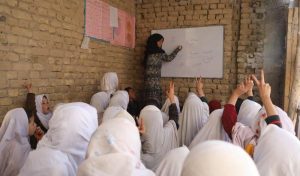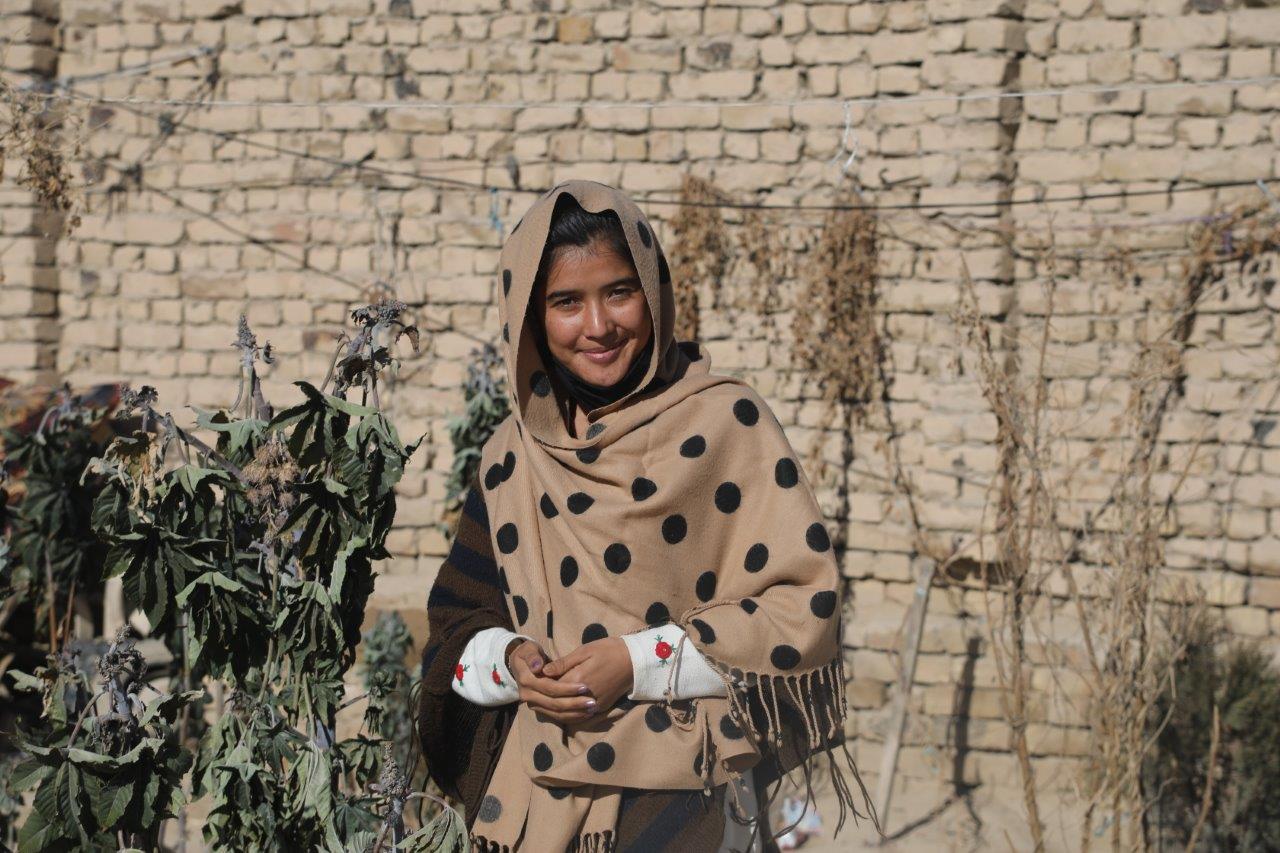“Education enables us to sense the meaning of life”
Mahbooba, a 22-year-old Afghan refugee in Pakistan, has often struggled to continue her education while also helping to provide for her family.
For over 40 years, persistent conflict and instability in Afghanistan have forced millions of Afghans to flee their homes in search of safety. Today, some 4.6 million Afghans, including 2.7 million registered refugees, still live outside the country, mostly in neighbouring Pakistan and Iran.
Pakistan hosts over 1.4 million Afghan refugees. Among them are Mahbooba Afghan and her family, who live in Quetta, the capital of Balochistan Province. Although Afghan refugees have access to education in Pakistan, financial pressures and prevailing cultural norms can prevent refugee children from attending school.
Mehbooba said It has been thirty years, but her parents still share the memories they have of the most dangerous journey of their lives. Due to the incessant armed conflict and bombing, they had decided to flee their home in Baghlan in the north-west of Afghanistan. They walked for days under enormous fear to find refuge in Balochistan, Pakistan. It was cold, and they did not have proper clothes to keep warm. They were also starving; the leftover food provided to them by the mosques that they passed on their way helped them survive.
Mehbooba’s family according to her has found safety here in Pakistan, but they have faced many challenges. she was 12 years old and in Grade 4 when her father was paralyzed in an accident. He was their family’s only breadwinner. Along with her mother and siblings, she started doing anything and everything that could to help support their family. Together, they were able to make enough to get by; they never begged for help.
she said It was important to her, as well as her parents, that she continue to stay in school and study hard. The idea of ‘education’ is beautiful; it is a sweet-sounding word. But the reality of trying to be educated was challenging; it took a lot of work and sacrifice to pursue her education and support her family at the same time, she remind.
When Mehbooba was in Grade 7, she started tutoring younger students. she would tutor them until around noon each day, and then grab her school bag to rush to school. Most of the time she barely even had a moment to wash her face, according to her. she also skipped meals to save time. Even with these efforts, the Afghan refugee was usually late for school. It was always disheartening to be punished and reprimanded for her lateness, but she couldn’t give up. At nights, she helped her mother carry out tailoring and embroidering jobs.

Despite these difficulties, it was worth it. Education is one of life’s basic and essential needs. Education enables us to sense the meaning of life; it is the only source of enlightenment and self-development. The Afghan refugee girl proud that the informal school that she’ve set up in her family home is now the place of learning for around 50 Afghan children; there are 32 girls and 12 boys currently enrolled in the school. She was so happy when the school was approved by the Afghan Consulate, as it means that her students’ academic certificates are not just recognized but are issued by the Afghan Government.
She quoted as said “as I tell my young students, education is a treasure, and every human being has the responsibility to find this treasure. It is education that has allowed me to help my family and community. Individually and collectively, we cannot prosper without education”.
“I’ve now gained admission to the University of Balochistan, where I will be pursuing a Bachelor’s in Public Administration. Depending on the COVID situation, I will be starting my classes in February. I hope that in the future, more young Afghans will be able to pursue their studies” Mehbooba mentioned.
Where she live, many children are deprived of education due to poverty as she said “I saw for myself that some families were reluctant to allow their sons to attend my school, as these little boys were bringing in a bit of money each day by working odd jobs”. It was even harder to convince some parents to enroll their daughters in school, given the traditional roles associated with women and girls. There has since been some improvement, but the process of change is always slow.
But even with a good education, the life of a refugee is very tough. Our degrees do not necessarily help us to get jobs, and we don’t live with the same sense of freedom that others have. Sometimes taunts and other acts of discrimination make us feel isolated and alienated from the society where we live and which we were born into.
“I have been listening to the news about the ongoing war in Afghanistan ever since I was a child. Yet, the name ‘Kabul’ feels tasty to my mouth. I am desperate to visit my homeland like any other Afghan living outside the country. It is disappointing that law and order have never been restored there; this discourages us from going back. Young Afghans around the world are talented and have a lot of potential, but they cannot return and benefit Afghanistan until there is peace and security” she emphasized.
According to Mehbooba her family and she are fortunate that they have found refuge here in Pakistan. But as refugees, they have more than just basic needs. They have other desires, too. “We long to participate in the communal life of the societies that we live in, including in terms of job opportunities, music and the arts. We want to travel without fear. We have our talents, but fear doesn’t let us benefit society” she added.
The Afghan refugee girl said “I want to say to the world: Respect and care for refugees; we were forced to leave our homes and trusted you to help ensure our safety and dignity”.
Mahbooba, 22, is a UNHCR Outreach Volunteer in Quetta, Pakistan.
Outreach Volunteers assist UNHCR and partners to communicate and share information with refugees. They also help refugees to access the services available in their local areas, and play an important role in the identification of refugees who are particularly vulnerable and in need of additional support. Today, UNHCR works with an estimated 1,400 Outreach Volunteers across Pakistan. Their numbers continue to grow steadily.


Comments are closed.